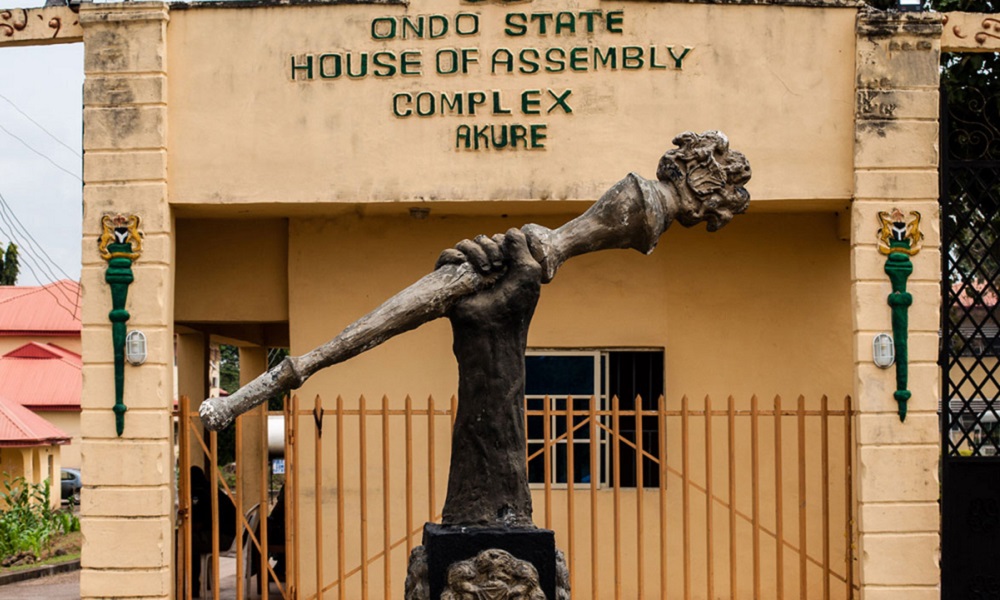News
Epileptic power: Obi weighs in, says 13,000mw for 200,000mw demands is unacceptable

…Nigeria has the lowest per capita wattage in the World
…wants a Technical Task Force in Place.
The Presidential Candidate of the Labour Party in the 2023 general election, Peter Obi has expressed deep concerns over the perennial power situation in the country recording 141 times of national grid collapse in 11 years and calls for urgent pragmatic solutions.
Obi noted that Nigeria has only 13,000mw while the demands are about 200,000mw.
He said that even with the 13,000mw, only about 3,500mw are available for homes and businesses noting that the situation puts Nigeria as the lowest per capita wattage in the World.
In an article, titled “The Collapsing Electricity Sector”, the LP standard’s bearer said “The Nigeria electricity supply industry faces real and present danger of collapse despite the efforts made in more than two decades to initiate a reform of the NESI.
“It is sad today that we suffer periodic and routinized system collapses that are attributed to such avoidable situations as fire outbreaks at critical transmission lines across our major cities. It is absolutely distressing and a story of a low level of managerial capability that the entire nation can be plunged into total darkness for a reasonable period because networks go out because of a lack of diligent attention.
“It should worry any Nigerian patriot that the total installed capacity for a country of more than 200 million people with an aspiration to become a global medium economy power is a mere 13,000. Worse still, only about 3,500mws are available for homes and businesses from the grid. Sometimes, it grinds to less than 2,500mws. This is unacceptable.
“We can contrast the available supply of electricity with competitor countries in Africa like Egypt and South Africa with respective populations of approximately 112m and 59.6m people supplying about 60,000mw and 58,000 respectively. This difference in energy wattage has massive implications for human development and economic growth. Nigeria today has the world’s lowest per capita wattage in the world, interesting lower than those of most of our West African neighbours. It is really sad that whereas our energy demand is above 200,000mws, we have only 13,000mw installed capacity and can only deliver regularly less than 4,000mw.
“After speaking with experts in the sector I have realized that the crisis of power supply in Nigeria relates to two major sectors: (1) generation, and (2) transmission and distribution. The major challenges of the generation sector are the lack of a regular supply of gas arising from the failure of the government in the last 8 years to provide adequate gas infrastructure facilities, weak commerciality of gas to power and failure to control the restiveness of angry youths leading to vandalism.
“It is shameful that for more than 8 years we cannot resolve the infrastructural bottlenecks that constrain the supply of gas to power plants despite billions from CBN for legacy gas debts.
“On the transmission and distribution side, the last 8 years have witnessed terrible failure to overcome the deterioration of networks and transmission and distribution networks and invest in modern technologies like SCADA leading to poor coverage, lack of effective coordination between TCN and discos leading to load rejection and inability to generate public trust for policy reform on tariff and leading to low private sector investments.
“If we had a good project manager, we would have massively increased generation, transmission and distribution capacity and enhanced policy coherence that would have crowded private sector investment in the degree to sustained rapid growth of the grid. The problem is that the government have exercised the required political will to appoint the right kind of leadership that understands the problems of the sector and has the singular dedication and competence to create quick wins in the short term and transformation in the medium to long term.
“I suggest that the Federal Government immediately constitute a technical task force of real professionals without political consideration to present a diagnosis of the crisis of the sector and to get to work to correct such simple slippage like incessant fire outbreaks that lead to perennial system collapse, drastically improve coordination and coherence between TCN and discos so there will be no load rejection, and breath down on all operators to deliver on their technical responsibilities. This will rapidly improve power availability in the short term while the government develop clarity to articulate an integrated national electricity policy and a practical implementation roadmap that harmonizes national and sub-national electricity reform efforts to ensure rapid and expansive delivery of reliable, adequate, and affordable electricity.
“We are too endowed to be a nation of generators and to be trapped in darkness. We cannot grow our economy in darkness.
Signed.
Dr Yunusa Tanko
POMR Spokesman
News
Army acquires 43 drones, wings 46 Turkey-trained personnel

The Federal Government has bolstered the Nigerian Army’s operational capacity with the acquisition of 43 Bayraktar TB2 drones, primarily for deployment in the North-West theatre of operations.
The Commander of the Nigerian Army Space Command, Brig. Gen. U.G. Ogeleka, disclosed this on Tuesday during the winging ceremony of 46 personnel trained in the operation and maintenance of the drones.
The initiative, codenamed Project Guardian, aims to strengthen military operations against insurgency and other security challenges in the region.
“Between May and September 2022, a team of 35 officers and 11 soldiers from the Nigerian Army’s routinely piloted aircraft system regiments underwent specialised training in Turkey on the operation and maintenance of the Bayraktar TB2 drones,” Ogeleka said. “The training crew included multi-piloted aircraft pilots, mission operators, avionics, and mechanical engineers and technicians.”
Out of the 46 trained personnel, 14 are multi-piloted aircraft pilots, seven are mission operators, and 23 are engineers and technicians.
Ogeleka presented 22 of the trained personnel for the winging ceremony, noting that the others are actively engaged in operational duties.
The Chief of Army Staff, Lt. Gen. Olufemi Oluyede, praised the acquisition of the drones and the training of personnel as significant steps toward enhancing the army’s professionalism and combat readiness.
“The winging of these 22 officers and soldiers as pilots and certified maintenance engineers is a morale booster for others in service,” Oluyede said. “It confirms their readiness to operate and maintain the Turkish Bayraktar TB2 drones in our inventory.”
Oluyede further revealed plans to procure additional unmanned aerial systems in the coming year to strengthen military operations across all theatres in the country.
The drones will play a critical role in addressing security challenges in the North-West, a region plagued by banditry and insurgency.
Their advanced surveillance and strike capabilities are expected to significantly enhance the Nigerian Army’s operational effectiveness.
This development underscores the government’s commitment to leveraging technology to improve national security and highlights the Nigerian Army’s drive to modernize its arsenal and build capacity within its ranks.
With more unmanned aerial systems set for acquisition, the military’s ability to conduct precise, real-time surveillance and combat operations is poised for substantial improvement.
News
Ondo Assembly mulls 10-year jail term for land grabbers

The Ondo State House of Assembly is considering a bill that proposes harsh penalties for land grabbers, including up to 10 years imprisonment for forceful entry or illegal takeover of properties.
Governor Lucky Aiyedatiwa has further reinforced the fight against land grabbing by signing an Executive Order to prohibit such activities.
The order aims to end forceful entry, illegal occupation of landed properties, and fraudulent or violent conduct related to land in the state.
To strengthen enforcement, the governor has established a Task Force to protect property rights, uphold the rule of law, and ensure a secure environment for property owners and residents.
The proposed bill also includes severe penalties of up to 21 years imprisonment for selling family land without the consent of the family head or secretary.
Hon Moyinolorun Ogunwumiju, the lawmaker representing Ondo West Constituency 1, who sponsored the bill, spoke during a public hearing on the bill
Hon Ogunwumiju assured stakeholders that the bill would improve land administration, protect landowners, attract investors, and foster peace and development in the state.
He explained that the bill sought to regulate land dealings, protect landowners and buyers, penalise encroachers, and criminalise unregistered agents.
Ogunwumiju said the bill proposed penalties of up to 10 years’ imprisonment for forceful entry or takeover of properties and up to 21 years for selling family land without the consent of the family head or secretary.
Speaker of the Assembly, Hon Olamide Oladiji, urged committee members and stakeholders to ensure the bill served the interests of the people.
He said the bill would maintain order in the state and impose necessary sanctions on offenders.
“Land grabbers pose a significant threat to property acquisition. Their activities ranging from trespassing, forceful occupation, and illegal sales of properties to multiple buyers must be confronted decisively.”
Majority Leader and Chairman of the House Committee on Rules and Business, Oluwole Ogunmolasuyi, said the bill, would benefit the society at large
Ondo Commissioner for Justice and Attorney General, Kayode Ajulo said the bill would enhance land administration and complement the executive order signed by Governor Aiyedatiwa.
Stakeholders including traditional rulers called for full implementation of the bill when signed into law.
News
FG earmarks N250bn for Lagos-Abuja rail project in 2025 budget

The federal government has made an allocation of N250 billion in the 2025 budget for the Lagos–Abuja mass transit rail project.
This budgetary investment is part of a broader plan to revitalize Nigeria’s infrastructure and stimulate economic growth.
The government’s focus on infrastructure development is rooted in the belief that it is a cornerstone of long-term economic planning.
By investing in critical infrastructure such as roads, railways, energy, healthcare, and education, the administration aims to create a conducive environment for both domestic and foreign investment.
The Lagos-Abuja rail project, in particular, is expected to have a transformative impact on the Nigerian economy.
By improving transportation connectivity between two major economic hubs, the project will facilitate the movement of goods and people, reduce logistics costs, and stimulate economic activity.
Additionally, the project is expected to create numerous jobs, both directly and indirectly, contributing to the country’s overall employment rate.
The government’s infrastructure investments are also aimed at addressing regional disparities.
By connecting different parts of the country through improved transportation networks, the administration hopes to stimulate economic growth in underserved regions, reduce poverty, and promote equitable development.
The 2025 budget signals the government’s commitment to transforming Nigeria’s infrastructure landscape.
By investing in critical projects like the Lagos-Abuja rail line, the administration aims to lay the foundation for a more prosperous and connected Nigeria.
However, the success of these initiatives will depend on effective planning, efficient implementation, and transparent governance.
-

 News23 hours ago
News23 hours agoGov Adeleke Speaks On Death Sentence For Chicken Thief
-

 News19 hours ago
News19 hours agoNetizens Slam Lawmakers As They Sing Tinubu’s Anthem At Budget Presentation
-

 News16 hours ago
News16 hours agoFinally, PDP Flushes Out Suspended National Vice Chairman, Ali Odefa
-

 News23 hours ago
News23 hours agoDelta Assembly pardons two suspended members
-

 News23 hours ago
News23 hours agoJust in: CBN Imposes N100k Bar on PoS, Issues Warning to Operators
-

 News12 hours ago
News12 hours agoReps Call for Revival of NAPAC to Boost Transparency, Accountability
-

 News23 hours ago
News23 hours agoHeavy Security Presence at National Assembly as President Tinubu Presents 2025 Budget
-

 News12 hours ago
News12 hours agoReps Recommends Delisting NECO, UI, Labour Ministry, 21 Others From 2025 Budget








